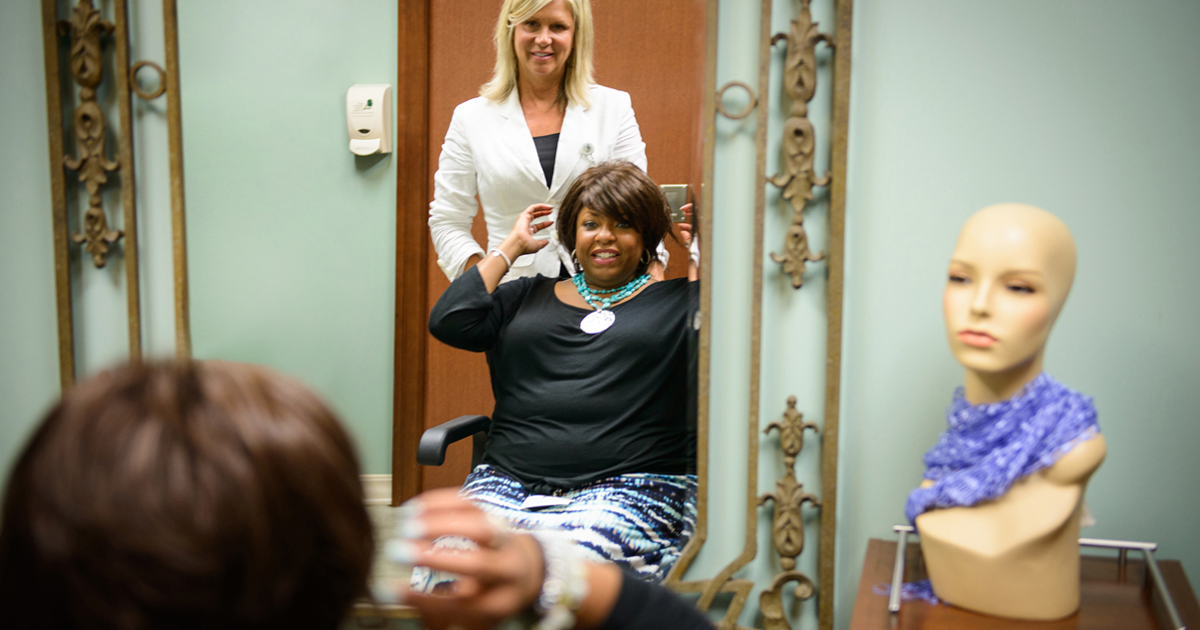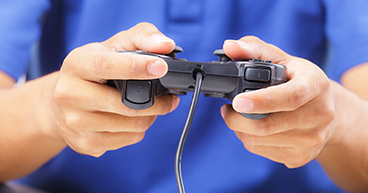
Many people have heard of the physical side effects of cancer treatment, like the nausea and vomiting often caused by chemotherapy. But emotional and intellectual side effects of cancer, like depression, cognition difficulties and body image issues, pose their own challenges and can be just as debilitating.
Recognizing and treating these challenges are just as critical as managing the physical side effects, experts say.
“If cancer patients are dealing with financial concerns, relationship instability or an inability to work, it can cause existential distress, which occurs when patients don’t have that autonomy, that control over their life. That’s why it’s so important to treat patients as people first and patients second.” – Imran Shariff, MD, Supportive Care Physician at CTCA Philadelphia
Here are some common non-physical side effects cancer patients face and tips for managing them:
Appearance/self-image
Cancer and cancer treatment may change how your body looks, feels and performs. Physical changes associated with cancer and its treatment that may impact your self-image include:
- Changes in weight (i.e., loss or gain)
- Thinning or loss of hair
- Changes in skin tone/color (i.e., blotchy skin) and nails
- Physical changes from surgery (i.e., scarring, loss of limb or part of the body)
- Changes in posture (i.e., Kyphosis, or hunchback)
- Changes in physical performance/abilities
- Changes in bodily/reproductive functions (i.e., incontinence, infertility)
- Swelling in the limbs (i.e., lymphedema)
These physical changes may affect your view of yourself in different ways. You may feel self-conscious or embarrassed about your body and appearance. A healthy self-image may help reduce depression and anxiety and improve your emotional well-being.
Tips for improving your self-image
- While your body may look and feel different, remember you are still the same person on the inside. Look within yourself and celebrate the person you are.
- Understand that many changes in your appearance may be temporary and will go away after you complete treatment.
- Experiment with ways to enhance your appearance. Use makeup, wigs, headscarves, etc. If you lose or gain weight, have your clothes altered.
- Ask your health care team about reconstructive or cosmetic options, such as reconstructive surgery, prosthetic devices and cosmetic solutions.
- If you are unable to participate in some of your former activities or sports, try to find new activities that interest you.
- Prepare for reactions from others. Think about how you will respond ahead of time so you are prepared to handle these situations.
- Maintain a healthy lifestyle. Keep up with routine health and hygiene activities, practice good nutrition, and stay active.
- Take part in activities outside of your home. If you are physically able, get involved in activities in your community.
- Seek support from friends, family and other cancer survivors.
Learn more about appearance/self-image issues and supportive care services that may help.
Cognition
Cancer treatments such as chemotherapy, and cancer itself, may cause mild cognitive impairments, including problems with thinking, memory, language skills, learning and concentration.
Chemotherapy-related cognitive dysfunction is known as “chemobrain” among cancer patients. Some symptoms of chemobrain include memory problems, difficulty thinking clearly, difficulty processing information, inability to focus or concentrate, and mental cloudiness or foggy-headedness.
Because cognitive changes vary from person to person, an individual assessment is an important first step in ruling out other conditions and developing appropriate intervention strategies. Medications for depression, attention-deficit hyperactivity disorder (ADHD), and dementia are being investigated for their potential to improve thinking and memory problems in cancer patients. Your doctor may also recommend behavioral strategies, lifestyle alterations, rehabilitation therapies and counseling.
Tips for coping with cognitive dysfunction
- Establish a daily routine and keep the same schedule each day.
- Create an organized environment that is free of clutter.
- When you need to complete tasks that require concentration, try to reduce distractions.
- Work and read in a quiet, uncluttered environment.
- Make a checklist, or a “to-do” list, of daily chores, errands and important things to remember (e.g., grocery list, medication schedules).
- Write your appointments in a calendar.
- Carry a personal organizer and/or notebook with you.<
- Place sticky notes around your house and workplace, or leave yourself voicemail messages as reminders.
- To sharpen your memory, try to learn a new skill, take a class or do crossword puzzles (e.g., Sodoku puzzles) or other games.
- Get plenty of sleep, exercise regularly, maintain a proper diet and manage your stress.
- Keep a daily journal to track changes in your thinking, memory and behavior, including when symptoms began, what time of day they occur and what influences them throughout the day. Share this information with your doctor.
- Share your experiences with others (e.g., friends, family, other cancer survivors).
Learn more about cognition and supportive care services that may help.
Emotional/psychological
If you are fighting cancer, it is not uncommon to experience psychological distress. Whether you are coping with the diagnosis, the challenges of treatment, or continued worry about a recurrence, emotions brought on by the cancer experience can be difficult to handle.
Cancer may bring on a range of emotions, including:
- Shock/disbelief
- Fear/uncertainty
- Guilt
- Grief/sadness
- Anxiety
- Depression
- Anger/frustration
- Feelings of isolation
- Vulnerability/helplessness
Psychological care is normal and necessary, and is an integral part of cancer care. Addressing your psychological well-being may help you feel more relaxed and in control, cope better during treatment, overcome anxiety and depression, and enjoy life.
Tips for improving your psychological well-being
- Find a new outlook. Focus on what you can change, not on what you can’t.
- Try not to generalize. Cancer means something different to each individual. Everyone experiences cancer differently and your experience is unique to you.
- Talk about your feelings. Reach out to family and friends, other cancer survivors, a spiritual leader, etc.
- Make healthy lifestyle choices. Pay attention to your needs for rest, nutrition, exercise and private time.
- Seek professional counseling, including individual, couple, family and/or group therapy.
- Try mind-body techniques, such as relaxation therapies, laughter therapy, stress management interventions, energy therapies, etc.
When cancer develops, it doesn’t just affect the body, but the mind, too, in many cases. And treating both the mind and the body are equally important. “I encourage more patients to speak up earlier about the non-physical side effects of cancer they may be experiencing,” Dr. Shariff says. “There are many things we can do to help them, especially if they recognize and report the symptoms early.”


